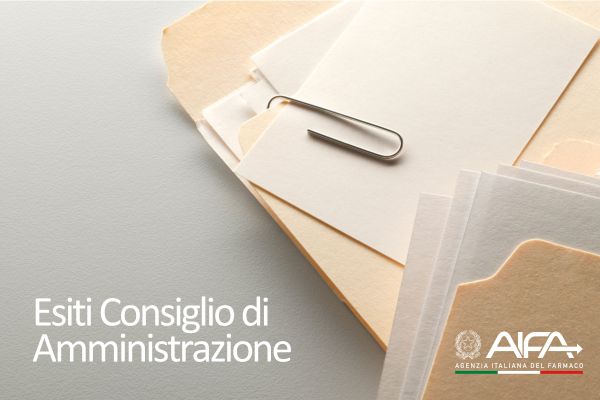.png) Agenzia Italiana del Farmaco
Agenzia Italiana del Farmaco
Quality defects
The quality of medicinal products available on the market is also ensured by a monitoring activity entailing the management of reports concerning the presence of defects in one or more batches of medicinal products or raw materials.
Reports of quality defects are sent to AIFA by private or public pharmacies, local (local health authorities) or hospital pharmacies, healthcare professionals, manufacturing companies or marketing authorization holders, the Istituto Superiore di Sanità (Italian National Institute of Health), AIFA offices as well as by the European Medicines Agency (EMA) and other EU national competent authorities or countries with which mutual recognition agreements are in place.
Private citizens can report defects only through pharmacies, physicians, local health authorities, or hospitals.
If the defect is verified and poses a health risk, restrictive measures are taken pursuant to article 142 of Leg. Decree 219/2006. Where appropriate, communication is also given through the AIFA website and the media.
If the reported product is manufactured in the national territory and is marketed in other EU Member States, an international Alert notice is disseminated through the Rapid Alert System (RAS), the network for the exchange of information between Member States.
Measures
IFA adopts restrictive measures to safeguard public health:
- ban on the use, with subsequent blockade at the discovery site, of the batch(es) covered by the measure, in particular in case of medicinal products for which specific storage temperature conditions must be met. Such products should remain separate from other medicines which may be found at the same site and should not be used until subsequent measures are issued following analytical results and/or advice from the Istituto Superiore di Sanità (ISS) or other regulatory authorities;
- withdrawal from the market, entailing an obligation for the MAH to withdraw the medicinal product or for the holder to return the medicinal product to the MAH. In case of urgency, the withdrawal shall take place as soon as possible (within 24-48 hours);
- ban on the sale (issued by AIFA), which has immediate effect and, for safeguarding public health, prevents the sale of a medicinal product by ensuring that it is immediately removed from the market. The ban may be also issued at the request of other authorities, when there is no guarantee that a reported defect is limited to certain batches or when the seriousness of the defect or possible contamination require the adoption of a specific restrictive measure.
AIFA notifies the measures taken to the Anti-adulteration and Health Units (NAS) of the police.
A further health protection measure is seizure, which can be ordered by AIFA or by the NAS, and provides for a number of options, such as sealing up the packages and entrusting their safekeeping – free of charge – to the person responsible for the site where the medicine covered by the measure was found. The seizure may be followed by a release notice, issued by AIFA or the Judicial Authority, which may provide for the use or the destruction of the medicinal product concerned.
MAHs may voluntarily withdraw batches of medicinal products pursuant to article 70 of Leg. Decree 219/2006, by notifying AIFA which acknowledges and endorses the withdrawals.
Classification of quality defects
The reported quality defects are classified according to the Compilation of Community Procedure on Inspection and Exchange of Information (EMA/INS/GMP/572454/2014 Rev 17) as Class 1, 2 or 3 defects, depending on their seriousness and hazard:
|
Classe: I |
|
Characteristics defects that are potentially life-threatening or that could cause a serious risk to health. They must be notified within 24 hours of the actual confirmation of the defect |
|
Examples
|
|
Communication Rapid alert in all countries |
|
Classe: II |
|
Characteristics Defects that could cause illness or mistreatment. A rapid alert notification should be sent to the Member States and to the countries with which a mutual recognition agreement exists, where the batch has been distributed, including via parallel import and distribution. |
|
Examples
|
|
Communication Rapid alert only in countries where the batch has been distributed |
|
Classe: III |
|
Characteristics defects that do not pose a significant hazard to health, but withdrawal may have been initiated for reasons not included in Classes I and II |
|
Examples
|
|
Communication No rapid alert |
Annual monitoring programme
The annual monitoring programme for the composition of medicinal products marketed in Italy – registered via national procedure, mutual recognition and/or decentralised procedure – provided for each year by AIFA decisions pursuant to art. 53, paragraph 15 of Legislative Decree 219/2006, provides for the drawing up of a list of medicines and active substances. These medicines and active substances need to be sampled and analysed in order to verify the compliance of the medicines/raw materials marketed in the national territory with the quality specifications authorised and reported in the registration file and/or in the monographs of the European Pharmacopoeia.
The Programme, prepared and managed by AIFA, after consulting the Istituto Superiore di Sanità (ISS), is approved by AIFA’s Technical Scientific Committee (CTS).
Sampling activities are carried out, upon AIFA request, by the NAS police at hospitals, pharmacies, local health authorities, warehouses or wholesale distributors.
Where the analytical results reveal discrepancies in relation to the authorised specifications, and the ISS opinions are unfavourable, AIFA shall take the necessary measures.
-
Anno 2025 - Aggiornamento al 01/10/2025 [0.01 Mb] [ODS] >
-
Anno 2025 - Aggiornamento al 01/10/2025 [0.01 Mb] [CSV] >
-
Anno 2025 - Aggiornamento al 02/04/2025 [0.01 Mb] [ODS] >
-
Anno 2025 - Aggiornamento al 02/04/2025 [0 Mb] [CSV] >
-
Anno 2024 - Aggiornamento al 02/10/2024 [0.01 Mb] [ODS] >
-
Anno 2024 - Aggiornamento al 02/10/2024 [0.01 Mb] [CSV] >
-
Anno 2024 - Aggiornamento al 02/04/2024 [0.01 Mb] [ODS] >
-
Anno 2024 - Aggiornamento al 02/04/2024 [0 Mb] [CSV] >
-
Anno 2023 - Aggiornamento al 31/01/2024 [0.01 Mb] [ODS] >
-
Anno 2023 - Aggiornamento al 31/01/2024 [0.01 Mb] [CSV] >
-
Anno 2023 - Aggiornamento al 15/01/2024 [0.01 Mb] [ODS] >
-
Anno 2023 - Aggiornamento al 15/01/2024 [0.01 Mb] [CSV] >
-
Anno 2023 - Aggiornamento al 03/10/2023 [0.01 Mb] [ODS] >
-
Anno 2023 - Aggiornamento al 03/10/2023 [0.01 Mb] [CSV] >
-
Year 2023 - Update at 5 July 2023 [0.01 Mb] [ODS] >
-
Year 2023 - Update at 5 July 2023 [0 Mb] [CSV] >
-
Year 2023 - Update at 3 April 2023 [0.01 Mb] [ODS] >
-
Year 2023 - Update at 3 April 2023 [0 Mb] [CSV] >
-
Year 2022 - Update at 7 March 2023 [0.01 Mb] [ODS] >
-
Year 2022 - Update at 7 March 2023 [0.01 Mb] [CSV] >
-
Year 2021 - Update at 24 Feb 2021 [0.01 Mb] [ODS] >
-
Year 2021 - Update at 24 Feb 2021 [0.01 Mb] [CSV] >
-
Year 2020 - Update at 25 Jan 2021 [0.01 Mb] [ODS] >
-
Year 2020 - Update at 25 Jan 2021 [0 Mb] [CSV] >
-
Year 2019 - Update at 11 May 2020 [0.01 Mb] [ODS] >
-
Year 2019 - Update at 11 May 2020 [0.02 Mb] [CSV] >
-
Year 2018 - Update at 2 Apr 2019 [0.01 Mb] [ODS] >
-
Year 2018 - Update at 2 Apr 2019 [0.01 Mb] [CSV] >
-
Year 2017 - Update at 16 Jan 2018 [0.01 Mb] [ODS] >
-
Year 2017 - Update at 16 Jan 2018 [0.01 Mb] [CSV] >
-
Year 2016 - Update at 15 June [0.01 Mb] [ODS] >
-
Year 2016 - Update at 15 June [0.01 Mb] [CSV] >
Reference offices
Product Quality and Pharmaceutical Crime Counteracting Office
Domenico Di Giorgio (ad interim)
0659784672d.digiorgio@aifa.gov.it







